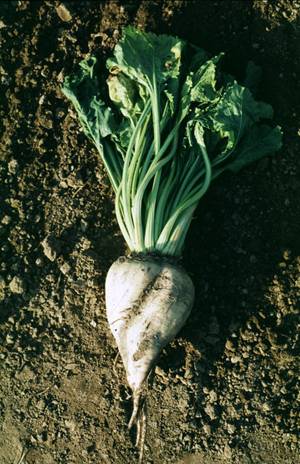HOLLINGSHEAD: Sugars beets: the future of Iowa agriculture?

HOLLINGSHEAD: Sugars beets: the future of Iowa agriculture?
October 4, 2008
There continues to be more demand for renewable energy sources than ever before due to a shortage of fossil fuels and the impacts of fossil fuel usage. Most recently corn-based ethanol has been the quickest alternative because of the large amounts of corn grown in the Midwest, but there is more crop diversity from ethanol such as cellulosic from switch grass and corn stocks. In Brazil, ethanol is produced from sugar cane, but sugar in the form of sugar beets could be grown in Iowa.
Heartland Renewable Energy in Muscatine is testing the waters with ethanol produced from sugar beets. Vince Lawson who is in charge of the Muscatine Island Research Farm produced half an acre of sugar beets on the Muscatine farm and half an acre of sugar beets on the southeast Iowa research farm.
“We felt there is a need to explore sugar beet production in Iowa because the ethanol produced from sugar beets will be more efficient than corn-based ethanol,” Lawson said.
Production biomass agronomist, Emily Heaton, a new faculty member in the agronomy department, knows the value of using an assortment of crops for ethanol production.
“Growing sugar beets in Iowa is absolutely possible — preliminary tests show better yields than the national average,” Heaton said.
Lawson said the national average yield for sugar beets is around 20 tons an acre, and the feedback on the southeast Iowa research farm was around 30 tons and acre, and the Muscatine research farm was right on with the nation average.” Sugar beet yields are typically reported at 80 percent moisture and mean dry matter yields of four and six tons an acre.
Where sugar beets shine in ethanol production is their efficiency. Ethanol produced from sugar is eight times more efficient than ethanol produced from corn. Heaton said that “with ethanol produced from sugar you skip a step in the process to make ethanol, with corn you have to turn the starch into sugar before fermentation, where as with sugar you can go straight to fermentation.
For Iowa to sustain sugar beet production there would have to be a number of factors. First, there has to be infrastructure sugar production. Second, the harvesters for sugar beet production are very expensive. Heaton said that “there needs to a good return on the investment for farmers to switch some of their production to sugar beets because if a you can’t turn a profit you can’t sustain the production — there has to be incentive.”
“Sugar beets can fit into any corn and bean rotation, and this year Roundup Ready sugar beets came out, so weed control for the farmer is similar to managing soybean production,” Heaton said.
Heaton and Lawson both said that the ethanol plants would have to work very closely with the sugar beet producers to build an infrastructure to harvest, store and process sugar for ethanol production. Also, a possible option might be that the ethanol producer would own the harvester for the sugar beet harvest.
There are a great number of pros and cons, but there needs to be continued research into ethanol from an assortment of crops, including corn, sugar beets, switch grass, Miscanthus, and corn stocks. “Beets are another tool in our toolbox. There is a need for a lot of crops with our continued demands for clean renewable energy,” Heaton said.
— Chet Hollingshead is a sophomore in agricultural studies from Ogden.






